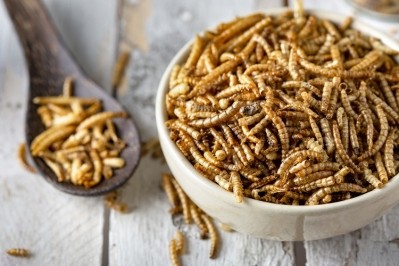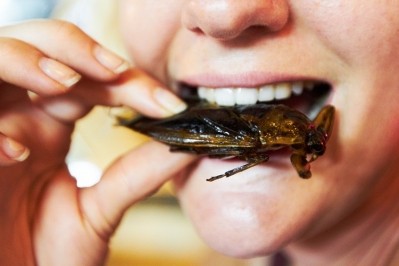Disgust still poses major barrier to adoption of insect protein

The emergence of insects as a form of alternative protein in many ways provides the best of both worlds. While they are, unlike some plant-based alternatives, very high in protein, they are also far more sustainable to produce than traditional meat.
For example, according to the World Economic Forum (WEF), insect farming requires lower levels of water and land use than cattle. A 2010 study suggested insects are connected to a mere 1% of the greenhouse gas emissions ruminants are. In terms of their protein content, one researcher suggested that crickets contain nearly three times the protein content of beef.
However, there at least one obvious barrier to their mass adoption: disgust. A range of studies in the past have shown that disgust, along with ‘food neophobia’ (the fear of the new), are preventing insects from catching on as a widely adopted diet, at least in the ‘western world’ where insects are rarely on the menu.
At the recent European Congress on Obesity held in Venice, researchers from Edge Hill University presented findings which showed disgust was not only a key factor in preventing consumers from eating insects, but that certain demographics felt disgust more keenly than others.
Which consumers are disgusted by insects?
The researchers used a sample of 603 UK adults to explore how levels of disgust shaped attitudes to insects. The participants were asked to complete a ‘Food Disgust Scale’, which measured their levels of disgust to certain culinary situations, such as food that’s been on the floor and moulded food. It also measured their reactions to unusual food, such as less commonly eaten parts of animals (jaw, organ etc.).
Getting authorisation
Despite their many benefits, their are also legislative barriers to selling insects. In the EU and UK for example, there are restrictions on which insects can be sold, and those must get novel food authorisation before going to market.
Respondents were also asked how they anticipated the taste or texture of insects, for example how sweet or savoury and how crunchy or slimy they would be.
These perceptions were not, on the whole, found to be favourable. Participants tended to anticipate low levels of enjoyment and liking, along with sweetness, and high levels of saltiness, bitterness and savouriness.
The participants were also asked if they would be willing to consume insects regularly. Thirteen percent of respondents were found to be willing, compared with 47% who said they wouldn’t, and 40% who were unsure. Generally, the level of disgust felt towards eating insects worked in tandem with consumer willingness to eat them, helped to predict this eventuality.

However, there were some outliers. While consumers were more willing to consume powdered insects than whole insects, their levels of disgust for powdered insects was actually higher than that towards whole insects.
According to the study, it is in fact young people who feel the lowest willingness to consume insects, with willingness decreasing on average by 2% by each year younger (the average age of the cohort was 34). This contradicts an earlier study on the consumer perceptions of insects, which suggested that aversion to the consumption of insects increases with age, and thus recommended aiming marketing around edible insects at younger people.
How can producers combat consumer disgust with insects?
How can producers of insect protein combat these levels of disgust? Previous studies have suggested increasing consumer familiarity with insects, as well as incorporating them in familiar food forms such as flour - for use in food formulation - could help.
Lauren McGale, lead author of the research, agreed. “Thinking about ways to overcome the disgust people feel is a difficult task. I think social norms and exposure could play a role, whereby the more commonplace eating insects becomes, the more accepting people may be of it as a 'normal' practice - especially considering they are already eaten in many cultures around the world,” she told FoodNavigator.
“Linking to the idea of normality and familiarity, presenting insects in more familiar formats (e.g. burgers) may also make them more acceptable - we have seen this with the plant-based market, which has really taken off in the last few decades.
“If a food was presented in a more recognisable format people may feel better equipped to cook with it and integrate it into their typical meals. However, whether or not this would be enough to overcome the disgust people feel about consuming insects remains to be seen and is something we plan to research.”
And could consumers have different reactions to different insects? "We were interested in understanding what their initial thoughts and reactions were when they heard the term 'insect', but it would be interesting to dig into this a little deeper going forward as it is likely that different insects will evoke different reactions from people," McGale told us.
























